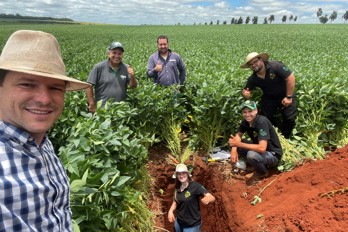Mustafizur Rahman on the Future of Duncan Brothers
A New Era of Leadership
As the newly appointed Managing Director of Duncan Brothers, Mustafizur Rahman is steering the company through a period of transformation. With a legacy spanning over a century, Duncan Brothers has long been a cornerstone of Bangladesh’s tea industry. Today, evolving market dynamics, climate challenges, and workforce shifts require a strategic approach to ensure long-term sustainability. In this interview, Mustafiz shares his priorities, ranging from sustainability initiatives to structural reforms, as he builds on the company’s strong foundations and prepares it for the future.
Mustafiz brings a wealth of experience to his new role. Having been with Duncan Brothers for over a decade, he has worked in various capacities, gaining a deep understanding of both operational and strategic aspects of the business. His journey with the company has seen him take on key leadership roles, including overseeing estate management and heading crucial operational divisions.
Adapting to Climate Challenges
Mustafiz explained the growing impact of climate change on tea production. He emphasized that unpredictable rainfall patterns and prolonged droughts pose significant challenges. To address these, Duncan Brothers is prioritising irrigation solutions, particularly rainwater harvesting and expanding grid connections to electric-powered irrigation sets.
"We have only one electric-run irrigation set currently, but we plan to implement more," he explained. "By extending grid connections to water sources, we can reduce reliance on diesel and reduce carbon emissions."
Mustafiz highlighted that rainwater harvesting is now a priority since excessive groundwater extraction is discouraged for sustainability. Over the past seven to eight years, the company has excavated about 12 reservoirs, each capable of sustaining tea plantations over a large area.
Addressing Workforce Challenges Through Mechanization
Another pressing issue is the shrinking workforce for tea plucking. As more individuals seek education and alternative employment in urban areas, fewer are willing to engage in traditional tea-plucking roles.
"We have tried different mechanization techniques, including handheld and battery-operated harvesters, but our workers are not yet used to them." Mustafiz noted. "Our approach is to engage individuals who might find the opportunity to use machines within agriculture more appealing. With proper motivation, we hope to minimize worker shortages in the coming years."
Market Positioning and Strategy
Duncan Brothers remains a dominant force in Bangladesh's tea industry, producing approximately 16% of the country’s total tea. While the company does not export, it maintains a strong presence in the domestic tea auctions.
"Our strategy focuses on volume and quality to maintain a sustainable revenue stream. Some of our gardens, like Lungla, Luskerpore, and Silloah, are preferred choices at auctions due to their strong brand value."
Leadership, Structural Changes, and the Future Vision
Mustafiz’s leadership philosophy centres on efficiency, openness, and a process-driven approach.
To enhance efficiency, he has spearheaded key structural changes. A major initiative includes succession planning, particularly in managerial positions.
"In our head office, retirement is now mandatory at 60 to create opportunities for younger talent," he stated. "For garden managers, retirement may be extended to 65 due to the specialized experience required."
Currently, their head office is in Dhaka, a fair distance from the tea gardens. To bridge this gap and enhance operational efficiency, a new upcountry office is being established within the gardens. Additionally, the leadership structure has been revamped with the introduction of a Head of Garden Operations and three General Managers overseeing three different valleys – Manu, Luskerpore, and Lungla and Juri.
"Previously, our managerial structure was limited. Now, we have introduced new senior roles which provide a clearer career path for employees," Mustafiz explained. "This will motivate our team and ensure accountability."
Mustafiz envisions a younger, more dynamic leadership team, he also emphasized the importance of hands-on experience in shaping future leaders:
"No matter which department an employee joins, they must spend at least a month in the gardens to understand the business first hand," he concluded.
One of the first steps he took after taking over was to introduce bi-weekly visits for garden managers to the Chittagong tea auction, an experience that is essential for them to understand the market dynamics and their own tea quality in respect of the competition. Taking the group to auction allowed them to witness the comparative tea-tasting of all major tea producers, engage with the brokers and major buyers, and gain a deeper understanding of market expectations.
As Mustafiz takes Duncan Brothers into its next chapter, his focus on sustainability initiatives, workforce development, and structural reforms will be key to steering the company toward long-term resilience and success in the evolving tea industry of Bangladesh.





